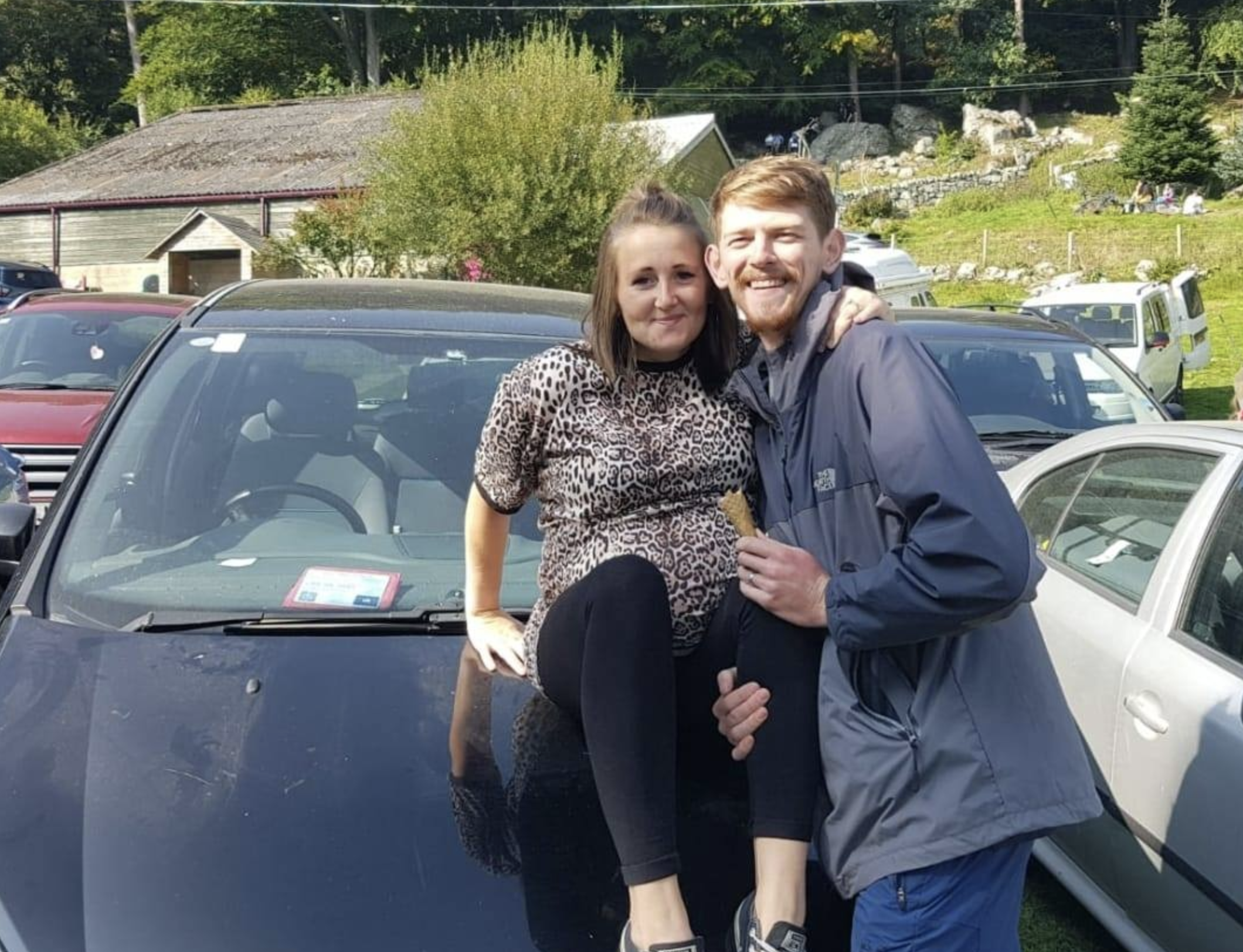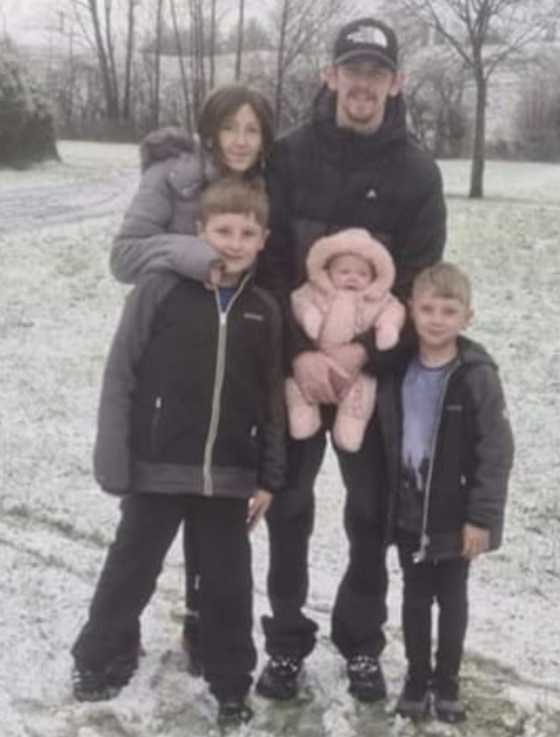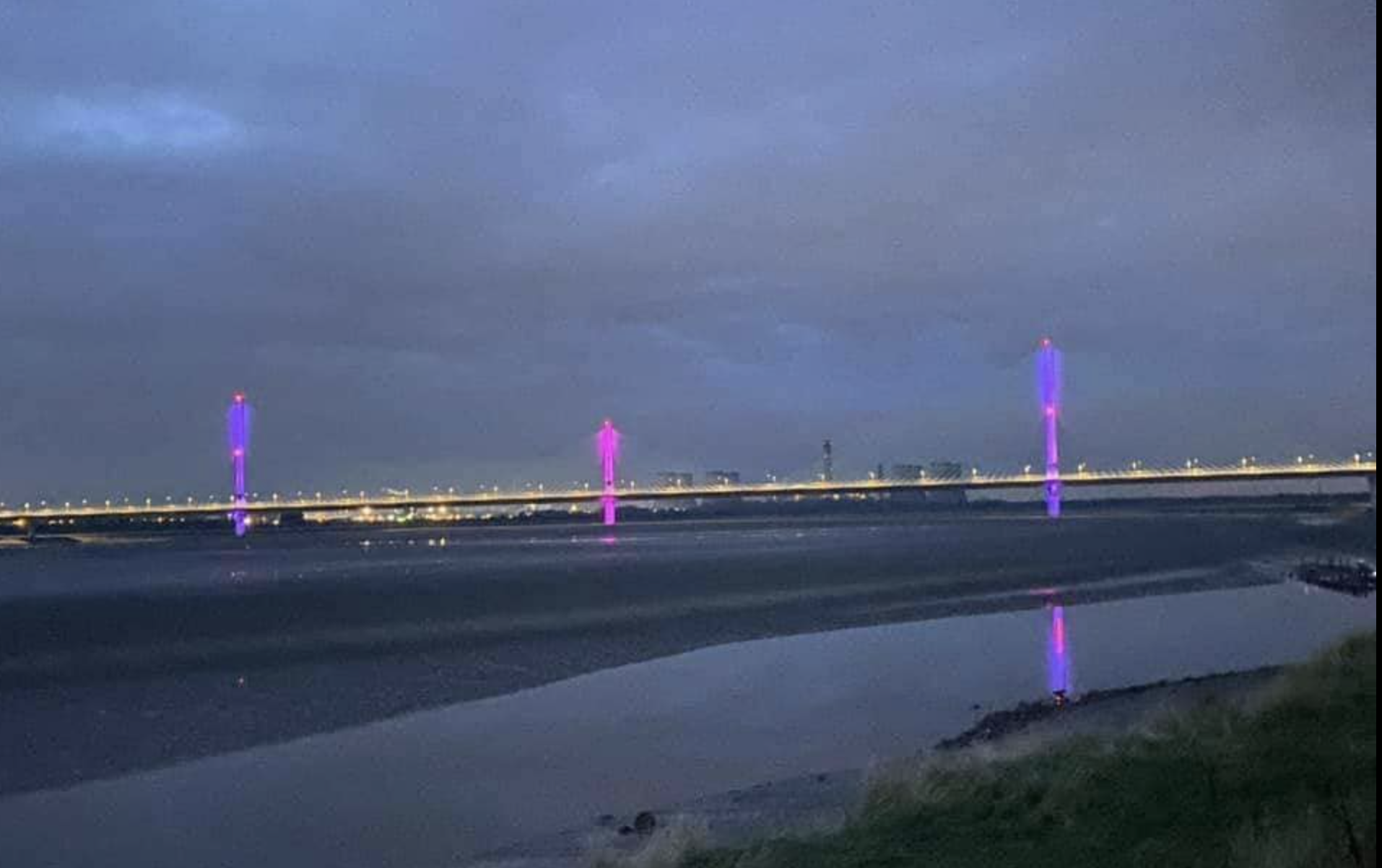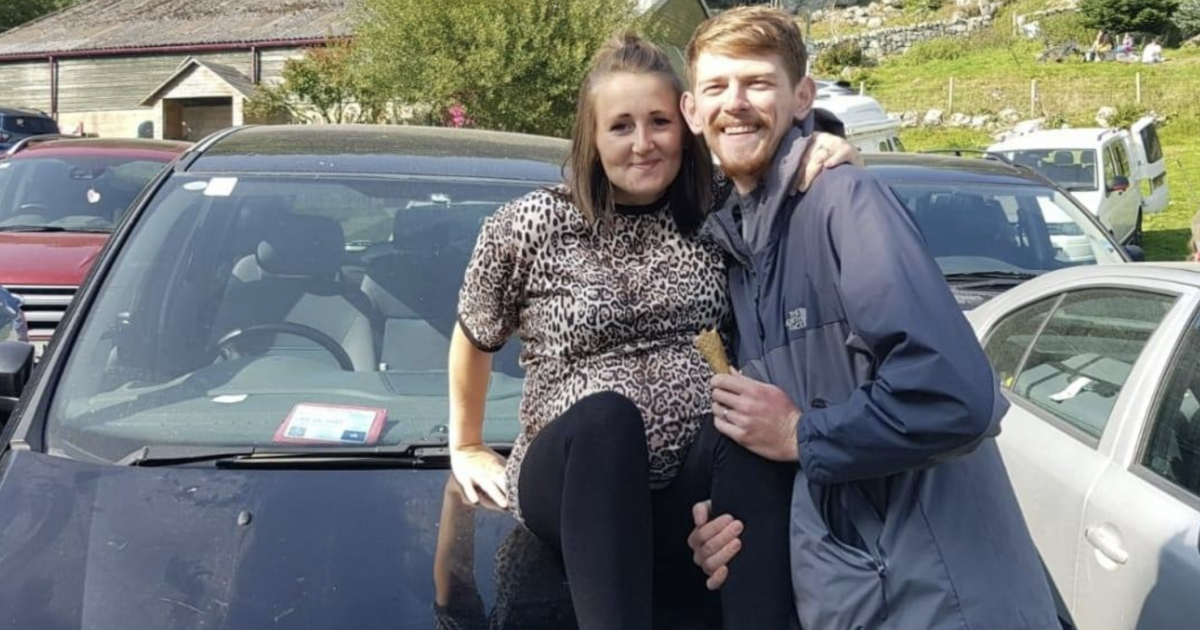Everlyn Is A Miracle Baby Two-Times Over
- Danielle Kelley, 30, discovered she and her husband Liam had conceived a child in March 2020, just months after she completed chemo for breast cancer. She then had an emergency C-section to deliver her daughter Everlyn in October of that year.
- The successful emergency C-section came just a few days after Danielle learned that she had secondary liver cancer. The mom of three got to spend two months with her new baby girl before being admitted to the hospital with pneumonia and sepsis around Christmas. Se passed away in February.
- “Fertility after a breast cancer diagnosis is fairly complicated,” Dr. Sarah Cate previously told Survivor Net. “Some patients that need chemotherapy may not be able to have children afterward because chemotherapy pauses menopause.”
Danielle Kelley, 30, did not consider the possibility of pregnancy following her battle with breast cancer, with the doctor informing her that chemotherapy would likely leave her unable to conceive.
Read More
Danielle got to spend two months with her miracle baby, Everlyn, before being admitted to the hospital around Christmas with sepsis and pneumonia.
Then, in February, she passed away.
However, her legacy lives on in her husband Liam and three children: sons Alfie and George and her miracle baby, Everlyn.

In honor of Everlyn’s first birthday and celebration of Danielle’s life, the town lit a local bridge pink and purple. Her mother, Annemarie Jackson, tells the Liverpool Echo it is a color her “daughter loved.”
The lighting also helps towards achieving Danielle’s dying wish says her mother.
“If we can get someone checked before what happened to Danielle if it saves one or two people, that's all she ever wanted,” says Jackson.

Miracle Baby: Fertility After Breast Cancer Battle
The likelihood of a woman to naturally conceive a child decreases after undergoing treatment for breast cancer.
“Fertility after a breast cancer diagnosis is fairly complicated,” Dr. Sarah Cate, a breast surgeon at Mount Sinai, previously explained in an interview with SurvivorNet.
“Some patients that need chemotherapy may not be able to have children afterward because chemotherapy pauses menopause.”
Dr. Cate said that oncologists often sit down and lay out the possible options with each patient. At Mount Sinai, a fertility specialist will also be present for those conversations.
“I always ask patients that either don’t have kids or are at an age where they could have kids, do they want more children,” said Dr. Cate.
“And then we would talk to them about preserving fertility, meaning typically to either take eggs or to make embryos if they have a significant other.”
Doctors will then preserve those eggs or embryos for possible use after treatment.
Dr. Cate also said that the level of chemo and stage of the disease play a role in determining whether a woman can conceive after cancer treatment.
“We don’t have a lot of hard and fast evidence that it's not safe to have a child,” stated Dr. Cate. “It typically depends on the patient's stage, the type of breast cancer that they have, and really individual features of the breast cancer, whether or not it's safe for them to go and have a baby after a diagnosis of breast cancer.”
Some encourage women to wait six months after completing chemo to try and conceive. Still, as miracle baby Everlyn proves, even that is not an obstacle for some breast cancer warriors.
Fertility Preservation After Cancer Diagnosis
Shifting Views On Post-Cancer Pregnancies
Danielle Kelley defied the odds in getting pregnant and doing so naturally despite having gone through chemo.
According to Dr. Terri Woodard, assistant professor, Department of Gynecologic Oncology and Reproductive Medicine at MD Anderson Cancer Center, it is seldom that easy for women who have battled breast cancer.
“Breast cancer is the most common cancer diagnosis that I see in young women. This is where fertility discussions often come up in terms of concerns surrounding safety and what pregnancy might look like after a breast cancer diagnosis,” Dr. Woodard told Survivor Net in a previous interview.
“Fortunately, I think the view of pregnancy after breast cancer has changed dramatically over the past ten years.”
Dr. Woodard explained that many believed there was only a slim chance of a woman naturally conceiving a child after battling breast cancer just a decade ago.
“Fortunately, the research that we have now suggests that in certain women, it is reasonable to become pregnant again after you’ve had a breast cancer diagnosis,” said Dr. Woodard.
“But in terms of fertility preservation, again, the chemotherapy that is often associated with the treatment of breast cancer can be damaging to the ovaries, and the older a woman is, the more likely it is to be damaging and cause a problem.”
That is why the freezing of eggs and embryos is recommended to most women, according to Dr. Woodard, though it is not the only option available to these women.
“Sometimes we can do a procedure called ovarian suppression, which is giving a medication that shuts down the ovaries,” said Dr. Woodard.
“We think that by doing that, we’re making the ovary more resistant to chemotherapy.”
And for those women who do wish to preserve their eggs, Dr. Woodward stressed that time is of the essence.
“Once we’ve started treatment, we know that we have already damaged any eggs that are there and that the response to ovarian stimulation – which is the process we use to get the eggs – is not going to be good,” she explained.
As a result, the quality of the eggs that might be viable are still “not going to be good.”
Preserving Fertility During Cancer Treatment
Learn more about SurvivorNet's rigorous medical review process.


